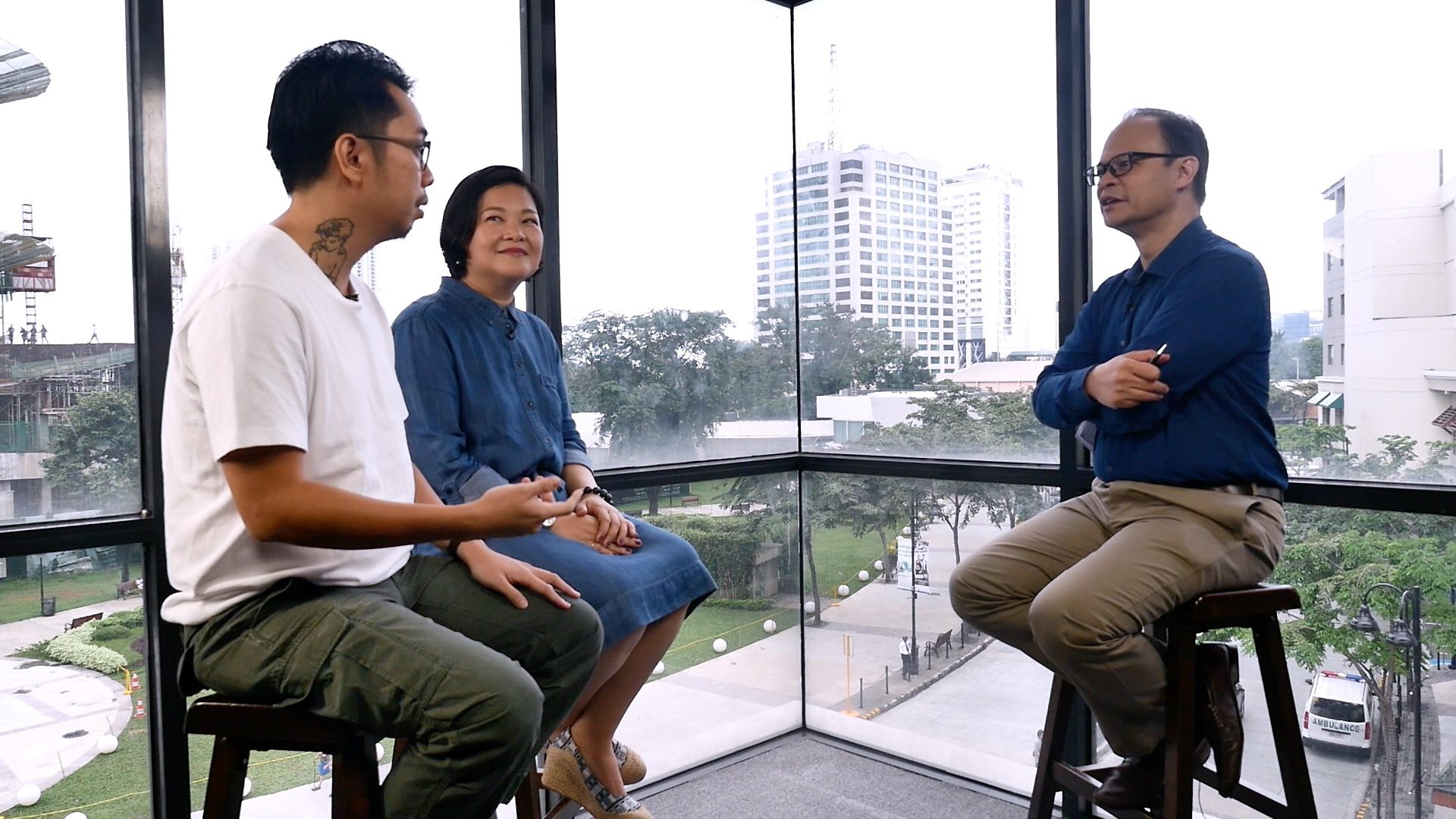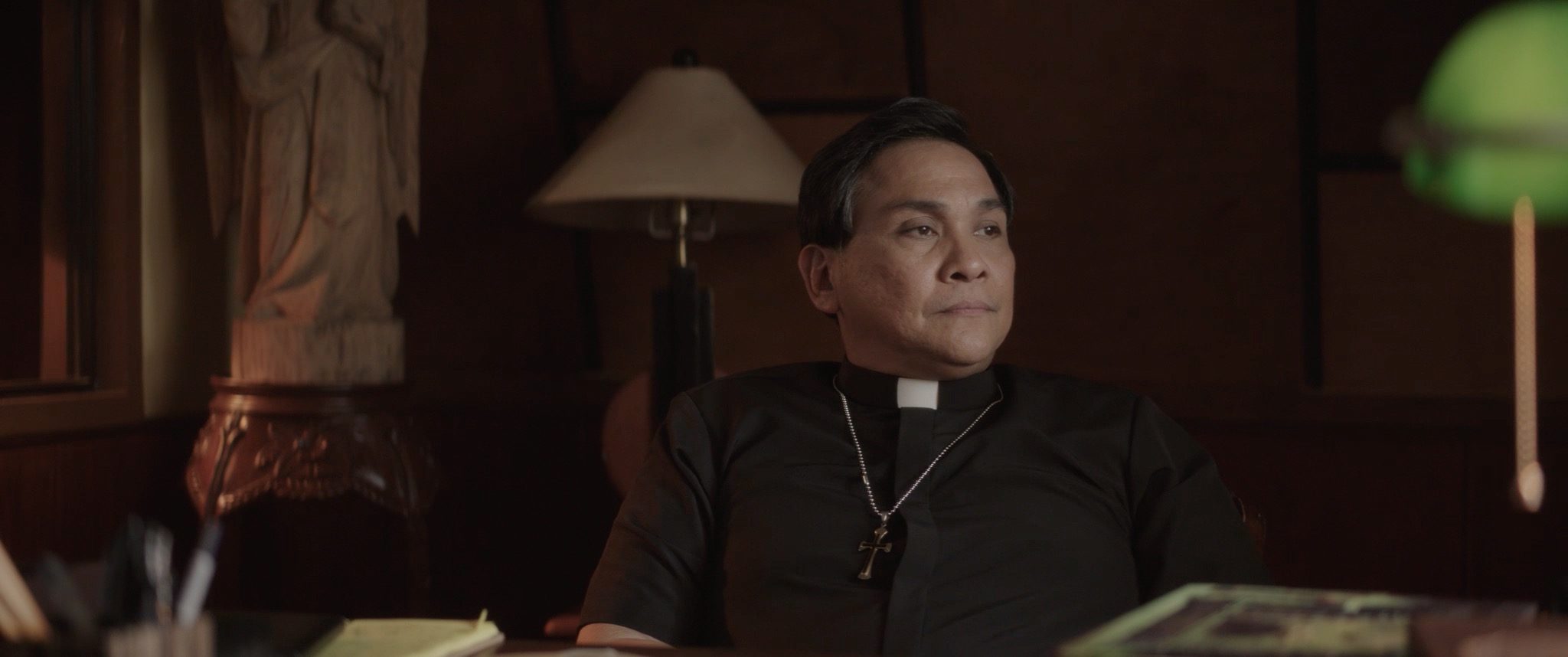SUMMARY
This is AI generated summarization, which may have errors. For context, always refer to the full article.

MANILA, Philippines – There’s a scene in the Smaller and Smaller Circles movie where the two priests who are helping investigate murders in Payatas are talking to each other via an online chat app that is clearly not Facebook, Viber, or WhatsApp.
“These boys, it’s almost as though they don’t matter. Nobody is watching,” one types out to the other.
Lines like that might make one think the movie is set in the here and now. One needs to remind oneself that the book the movie is based on was written in the pre-Facebook 1990s. The violence in it isn’t connected to drugs, the politics is just NBI intramurals.
“What’s interesting about the movie coming out later this year, is that we never expected for this kind of scenario, really, this story to be happening around us,” director Raya Martin said in an interview with Rappler, referring to dead boys. “We just wanted to tell the story. This story is set in the ’90s.”

It was in the 1990s when FH Batacan first wrote Smaller and Smaller Circles. It was a novella then, and won a National Book Award and a Palanca prize. Fast forward about a dozen years and a US publisher asks Batacan to expand it to a full crime novel. Then TBA – the people behind Heneral Luna – get the rights to make it into a movie.
In the interview, Martin and producer Ria Limjap talk about how the two of them first encountered the book, separately and years apart. They talk about getting the rights, casting the roles, and filming the movie in 20 days, then spending months to edit it. They share what made working from a book different from working from history, like Heneral Luna.
It is film adaptation that drew me to the movie. It doesn’t happen often in the Philippines. Whether that’s because local books are few or difficult to translate to film, or because producers don’t think books can be made into profitable movies, I don’t know. But if this movie is in some way financially successful, it could inspire more adaptations, and eventually a few writers may get a better payday, whether from the film rights, or from increased demand for their books.
Creative writers and risk-taking filmmakers need all the encouragement they can get.

In an interview elsewhere, Batacan, the author of Smaller and Smaller Circles, said she knew the film would be different from the book. There are some things that work in words one reads over hours, if not days, that don’t work in the 1 1/2-hour to 2-hour format of most movies. Her only wish is that what her book says about the country’s political and social problems comes through.
We interviewed Martin and Limjap as they were preparing to finally announce a screening date. (Smaller and Smaller Circles is now set for December 6, following its participation in the Busan International Film Festival later this month.) It was the same week that special screenings of Cinemalaya winner Respeto and a month-long run of PETA’s Game of Trolls both ended. In Respeto, a present-day thread about the drug trade finds a link to Ferdinand Marcos’ Martial Law, while in Game of Trolls, a pro-Marcos troll is haunted by Martial Law victims. It’s no coincidence they were in September, the month Marcos killed democracy in 1972. Both productions were creative triumphs.
The problems Batacan wanted to reflect are in the Smaller and Smaller Circles movie. Poverty. Hunger. Crime. How some members of the Church seem to be doing good while others seem to be siding with evil. Even, inadvertently, dead boys. And they are certainly in the Martial Law movie and play. For better or worse, it’s difficult to produce an honest book, movie, or play set in the Philippines and avoid them. We just keep circling back. – Rappler.com
Coco Alcuaz is a former Bloomberg News bureau chief and ANC business news head and anchor. He now hosts Rappler’s “What’s the Big Idea?” interview series. Reach him on Twitter at @cocoalcuaz.
Add a comment
How does this make you feel?
There are no comments yet. Add your comment to start the conversation.